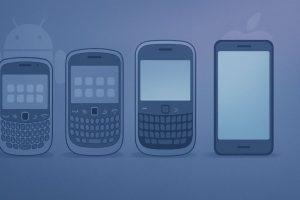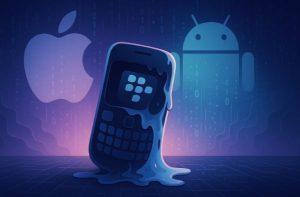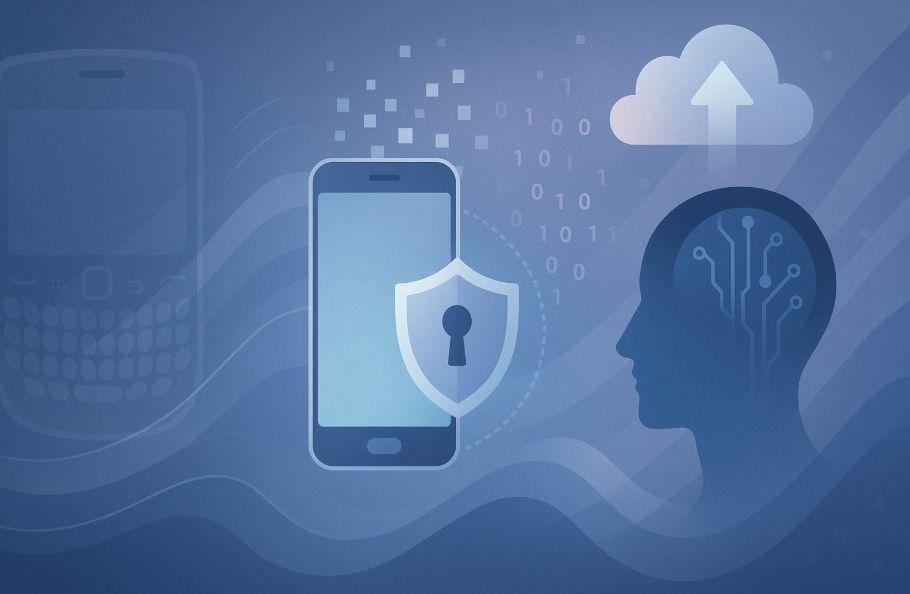For decades, BlackBerry stood as a titan in the mobile technology industry. Known for its signature QWERTY keyboard, secure communication, and enterprise-focused services, it became synonymous with business communication in the early 2000s.
However, in recent years, the brand has seemingly vanished from the consumer spotlight. This raises a crucial question: did BlackBerry really go out of business, or has the company simply evolved into a new phase? Let’s explore the truth behind this tech giant’s transformation.
What Happened to BlackBerry as a Smartphone Brand?

BlackBerry once held a commanding position in the smartphone industry. In 2009, it controlled nearly 20% of the global smartphone market. The BlackBerry Bold, Curve, and Storm models became status symbols, particularly among professionals.
However, the rise of touchscreen smartphones led by Apple and Android disrupted the traditional mobile landscape. Consumers began to prefer app-rich ecosystems and sleek user interfaces, areas where BlackBerry lagged behind.
Despite attempts to modernise, such as launching the BlackBerry 10 OS and partnering with Android in later models, the brand failed to reclaim its dominance. The final blow came in 2016 when BlackBerry announced it would stop designing its own phones.
Why Did BlackBerry Phones Get Discontinued?
The discontinuation of BlackBerry smartphones wasn’t sudden. it was the result of declining sales, reduced market relevance, and strategic redirection. Several key reasons contributed to this decision:
- App Ecosystem Deficit: BlackBerry devices lacked access to popular apps, which became essential for modern smartphone users.
- User Experience: While BlackBerry’s physical keyboard appealed to some, it could not compete with the intuitive design and responsiveness of modern touchscreen interfaces.
- Security vs. Entertainment: BlackBerry prioritised enterprise-level security, but the consumer market demanded entertainment, customisation, and multimedia features.
In 2016, BlackBerry ceased manufacturing its own smartphones and shifted the licensing of its brand to other companies, such as TCL. However, even those licensed models struggled, leading to a full-scale exit from the phone market by 2022.
When Did BlackBerry Shut Down Its Phone Services?
On 4 January 2022, BlackBerry officially decommissioned its legacy smartphone services. This included devices running BlackBerry 7.1 OS, BlackBerry 10, and the PlayBook OS. With the shutdown, these devices lost access to essential features like phone calls, messaging, and emergency services.
This moment marked the symbolic end of BlackBerry’s journey as a mobile device company. The infrastructure supporting its classic smartphones was no longer viable or relevant in a 5G-driven world.
Has BlackBerry Completely Gone Out of Business?

Contrary to popular belief, BlackBerry did not go out of business. it reinvented itself. While the consumer-facing hardware business was retired, the company pivoted toward enterprise software, cybersecurity, and automotive technology.
Today, BlackBerry Limited operates as a B2B (business-to-business) software provider. Its current portfolio includes secure communication platforms, endpoint security solutions, and embedded software for vehicles. The iconic BlackBerry name lives on but in a completely different capacity.
What Is BlackBerry Limited Doing Now?
BlackBerry has successfully rebranded itself as a key player in cybersecurity and IoT (Internet of Things) solutions. Its software now powers over 215 million vehicles worldwide, offering real-time operating systems through its QNX platform.
Additionally, BlackBerry provides enterprise software focused on threat detection, secure communication, and regulatory compliance areas in high demand among governments and large corporations.
In many ways, the company is thriving just not in the way consumers once knew it.
How Did BlackBerry’s Business Model Change Over Time?
Here’s a breakdown of BlackBerry’s transformation from hardware to software:
Period |
Business Focus |
Key Products/Services |
Market Position |
| 1999–2010 | Mobile Hardware & Email Devices | BlackBerry Curve, Bold, BES (BlackBerry Enterprise Server) | Dominant in business communication |
| 2010–2016 | Transition Phase | BlackBerry 10 OS, BBM, Z10 | Declining market share |
| 2016–2022 | Licensing Model | Android BlackBerry Phones (by TCL) | Niche presence |
| 2022–Present | Software & Cybersecurity | QNX OS, BlackBerry Cylance, UEM | Respected enterprise software provider |
This shift allowed BlackBerry to capitalise on its long-standing reputation for security, entering markets less vulnerable to consumer trends.
Was the End of BlackBerry OS the Beginning of the End?

Yes, in many respects, the discontinuation of the BlackBerry OS signalled a crucial turning point. BlackBerry 10, although promising, failed to gain the necessary developer support. The lack of third-party apps and user adoption led to its eventual demise.
When BlackBerry devices began running Android, it was an acknowledgment that its proprietary OS couldn’t compete. The end of BlackBerry OS not only affected its phones but also marked the company’s full pivot away from hardware.
How Did Competition in the Smartphone Market Impact BlackBerry?
The fierce competition from Apple and Android manufacturers drastically changed BlackBerry’s trajectory. These competitors offered more versatile platforms, app ecosystems, and design innovations.
Apple’s iPhone brought touchscreens and user-friendly experiences to the mainstream, while Android enabled countless manufacturers to flood the market with options at various price points. BlackBerry couldn’t keep up with the pace of innovation, marketing, or consumer demand.
What Lessons Can Be Learned from the Rise and Fall of BlackBerry?
BlackBerry’s story is a textbook case of innovation disruption and strategic missteps. Key lessons include:
- Adaptation is vital: Failing to evolve with consumer demands can make even market leaders obsolete.
- Don’t underestimate user experience: Security alone wasn’t enough to attract a mainstream audience.
- Timing is everything: Delays in embracing touchscreens and third-party apps hurt BlackBerry’s appeal.
These lessons continue to influence modern tech firms as they navigate rapidly shifting trends.
Are There Any Future Plans for BlackBerry in the Tech Industry?

BlackBerry’s future lies in cybersecurity, automotive systems, and enterprise communication. Its QNX operating system remains a leader in embedded automotive technology, trusted by manufacturers like Ford, BMW, and Volkswagen.
Additionally, the company continues to expand its AI-driven threat detection tools through its Cylance platform. While you won’t see another BlackBerry handset on the high street, the company’s future is secure and perhaps brighter than its recent past.
How Did BlackBerry Influence Modern Smartphone Technology?
Though BlackBerry is no longer a dominant player in the smartphone market, its influence continues to shape the mobile tech landscape. At its peak, BlackBerry introduced concepts that are now standard across modern devices.
Some of the most significant contributions include:
- Push Email Technology: BlackBerry pioneered real-time email delivery on mobile, a feature that revolutionised business communication and is now a norm on every smartphone.
- Mobile Security: With end-to-end encryption and secure enterprise servers, BlackBerry raised the bar for mobile security, prompting rivals to strengthen their privacy protocols.
- QWERTY Keyboard Layout: Though largely replaced by touchscreens, BlackBerry’s physical keyboard layout was widely appreciated for its speed and accuracy, inspiring many early Android manufacturers.
- BBM (BlackBerry Messenger): Pre-dating WhatsApp and iMessage, BBM set the standard for mobile instant messaging, showing that secure, real-time chat could be central to a device’s appeal.
Even today, many enterprises continue to rely on secure mobile platforms that trace their roots back to BlackBerry’s innovations. The company’s early focus on secure communication and productivity helped define what smartphones would ultimately become.
Could BlackBerry Make a Comeback in the Future?
While a mainstream consumer comeback seems unlikely, BlackBerry could still return to the public spotlight in other forms. In fact, there have been occasional rumours and speculative announcements about licensed BlackBerry phones or secure communication tools tailored to specific industries like defence or finance.
In 2020, BlackBerry announced a partnership with OnwardMobility, a Texas-based start-up, with plans to release a 5G BlackBerry smartphone. However, the project was quietly cancelled by 2022, reaffirming the company’s decision to stay focused on software and security rather than hardware.
Still, in the rapidly evolving world of cybersecurity, AI, and connected cars, there is plenty of room for BlackBerry to make headlines. It’s currently working on:
- Enhancing AI-driven security software to combat cyber threats
- Expanding its QNX operating system to support autonomous driving
- Developing partnerships in IoT infrastructure and smart cities
While it may never compete again with Apple or Samsung in the mobile space, BlackBerry could continue to thrive by becoming an indispensable part of our digital infrastructure quietly powering the systems we rely on every day.
Conclusion
So, did BlackBerry go out of business? Not exactly. While the brand’s phones have disappeared from the market, the company behind them BlackBerry Limited continues to thrive in new arenas.
From pioneering mobile communication to securing data for Fortune 500 companies, BlackBerry’s evolution is a testament to corporate reinvention. It’s no longer the phone in your pocket, but it might just be the software protecting your data.
FAQs
Is BlackBerry still making any devices?
No, BlackBerry no longer manufactures or licenses smartphones. All legacy device support ended in 2022.
Does BlackBerry still offer enterprise software solutions?
Yes, BlackBerry provides software for cybersecurity, endpoint management, and encrypted communication.
Can you still buy old BlackBerry phones?
You may find them on resale or collector platforms, but they no longer function for calls, texts, or data.
What is BlackBerry’s role in cybersecurity today?
BlackBerry is a major player in AI-driven cybersecurity, offering solutions to governments and large enterprises.
Why did BlackBerry lose to Apple and Android?
It failed to adapt to changing consumer preferences, lacked third-party app support, and fell behind on innovation.
Who owns BlackBerry now?
BlackBerry Limited remains a Canadian public company, trading on the NYSE and TSX under the symbol BB.
What was BlackBerry’s biggest mistake?
Delaying the move to touchscreen devices and underestimating the importance of the app ecosystem.









Leave feedback about this